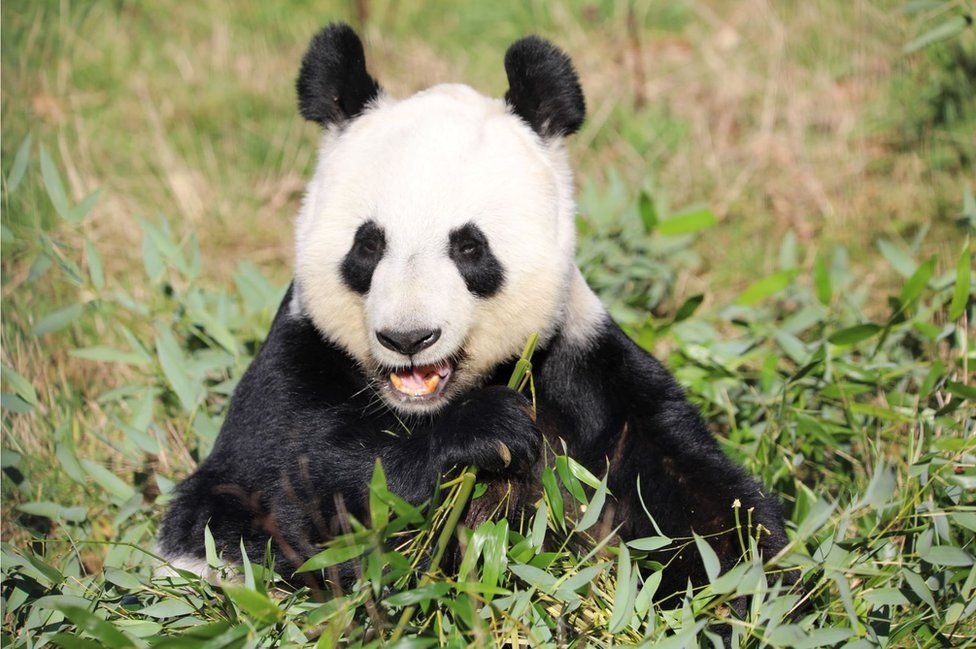 Image source, RZSS
Image source, RZSS
Tian Tian likes to keep to herself and choose when she interacts
Edinburgh Zoo visitors will be able to see its giant pandas for the final time on Thursday before they are sent back to China.
But they are due to return in December under the terms of a 10-year loan, which was extended due to the pandemic.
The first giant pandas to live in the UK for 17 years, they touched down in a plane dubbed the "FedEx Panda Express" on 4 December 2011.
The Royal Zoological Society of Scotland (RZSS), which runs the zoo, paid an annual fee of one million dollars (currently about £790,000) to China for the bears.
But within 12 months the "panda effect" had boosted ticket sales by about 50%.
In their time in Scotland, zoo staff and veterinarians from China made eight attempts at artificial insemination between the pair. However they failed to produce any cubs.
The last attempt was in 2021, after which the giant panda breeding programme was stopped.
Visitors can see the pandas in their enclosure until 15:30 and then they will be out of sight as keepers prepare the bears for the long journey home.
For security and safety reasons, the exact date and time of their departure has been withheld but it is believed they are leaving next week.
Zookeeper Michael Livingston will accompany the pandas to China
Since day one, zookeeper Michael Livingston has looked after the bears, attended to their needs and got to know their different personalities.
He said: "Yang Guang is more of a people panda.
"He likes interaction with the keepers. Whilst he's still a wild animal, and they're not pets at all, we definitely have a nice relationship in terms of our interaction with him and he definitely likes that interaction with us.
"Tian Tian on the other hand is completely different.
"She likes interaction when she wants it. She likes things her own way."
Image source, RZSS
Image caption,Yang Guang is a "people panda"
Mr Livingston told BBC Scotland News it had been a steep learning curve.
"We had looked after most bear species over the years but they were completely different. They needed a bit more attention, they were a lot more sensitive.
"Getting our head around the bamboo was one of the biggest things. We quickly learned there was a seasonality of the species they like. Some species they won't eat at certain times of the year. We became experts in bamboo care."
He will be the last person to say goodbye as he will be accompanying the bears on the journey back to China.
The zookeeper added: "They have consumed our lives over the past 12 years.
"I think it'll be a sad day. I am very happy to be going with them and feel lucky so it's quite nice I get to end that with them."
The China Wildlife Conservation Association said that the country was now "well-prepared to welcome them back".
When they arrive, the bears will begin a month's quarantine at the China Giant Panda Conservation and Research Centre in Ya'an, in the Sichuan province.
 (1).png)
 1 year ago
23
1 year ago
23


















